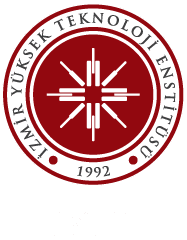ECAR Seminar: Prof. Dr. Barbaros Özyılmaz
Title: 2D Amorphous Materials and their Applications: From Ferromagnetic 2D Superconductivity To Ultra-Low k Dielectrics
Speaker: Prof Barbaros Özyılmaz
Date: 6 July 2023, 13:00
Place: Fen C 307
Abstract:
Disordered systems in the atomic limit offer several existing possibilities in both basic science and applications which are difficult to realize with 2D crystals. Examples range from higher order topological insulators to perfect Li ion membranes/solid state electrolytes. In my talk I will discuss two examples. First, I will discuss the synthesis, properties, and applications of monolayer amorphous carbon (MAC), the only realization of a free standing 2D amorphous material so far [1]. Extensive characterization by transmission electron microscopy reveals the complete absence of long-range periodicity and a threefold-coordinated structure with a wide distribution of bond lengths, bond angles, and five-, six-, seven- and eight-member rings. I will discuss its potential use as an atomically thin diffusion barrier and as an ultra-low k dielectric. Combined with its low-temperature synthesis by laser-CVD, these are critical features to enable substantial improvements in silicon-based semiconductor electronics and ensure compatibility with future 2D electronics. For energy applications, e.g., as supercapacitors such materials can also be synthesised as nano-porous monolithic amorphous carbon foam using spark plasma sintering (SPS). Next, I will discuss the role of disorder in atomically thin niobium diselenide (NbSe2) intercalated with dilute cobalt (Co) atoms and show that such systems spontaneously display ferromagnetism below the superconducting transition temperature. We elucidate the origin of this phase by constructing a magnetic tunnel junction that consists of Co and Co doped NbSe2 as the two ferromagnetic electrodes. At a temperature well below , the tunnelling magnetoresistance shows a bistable state, suggesting a ferromagnetic order in superconducting Co-NbSe2 [2]. We propose a RKKY exchange coupling mechanism based on spin-triplet superconducting order parameter to mediate such ferromagnetism. Non-local lateral spin valve measurements with Hanle spin precession signals up to micrometres below suggest an intrinsic spin-triplet state in superconducting NbSe2 as key ingredient.
[1] Toh, C.-T. et al., Synthesis and properties of free-standing monolayer amorphous carbon. Nature (2020).
[2] Qu, Tingyu et al., Ferromagnetic Superconductivity in Two-dimensional Niobium Diselenide, under review.
